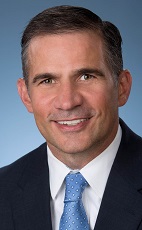
Advancements in mobile technology continue to evolve at a furious pace. It has created a permanent sense of immediacy between hotels and their guests, and has defined how they interact with each other. Mobile check-in and mobile check-out are quickly becoming commonplace, not only for guest convenience but also because it generates savings for the hotel. Digital entry is also being deployed which allows a smartphone to open hotel rooms or guest-only areas like fitness rooms or spas, enhancing security for all in the process. Mobile service requests allow guests to interact with on-property staff from wherever they are, for housekeeping, dining or concierge services. Guests will soon be able to use their smartphones to control room temperatures, adjust room lighting, and change the channels on their room televisions. Smart controls will also allow guests to personalize their rooms pre-arrival, even selecting their choices for the mini bar. Mobile payments are also being embraced by hotels, providing guests with the option to use their smartphones to pay for all their purchases during their stay. And strategically-placed beacons allow hotels to send real-time marketing promotions directly to guest smartphones as they pass by. Most of these developments are being driven by a need to appeal to the 80 million Millennials who will soon supplant Baby Boomers as the generation spending the most on travel. The millennial generation is characterized by a preference for technology-driven, personalized experiences, and they expect hotels to provide them with up-to-date, seamless and robust mobile technology. The January Hotel Business Review will explore what some hotels are doing to maximize their opportunities in this mobile space, and will report on the solutions that are proving to be most beneficial for both hotels and their guests.



 Advancements in mobile technology continue to evolve at a furious pace. It has created a permanent sense of immediacy between hotels and their guests, and has defined how they interact with each other. Mobile check-in and mobile check-out are quickly becoming commonplace, not only for guest convenience but also because it generates savings for the hotel. Digital entry is also being deployed which allows a smartphone to open hotel rooms or guest-only areas like fitness rooms or spas, enhancing security for all in the process. Mobile service requests allow guests to interact with on-property staff from wherever they are, for housekeeping, dining or concierge services. Guests will soon be able to use their smartphones to control room temperatures, adjust room lighting, and change the channels on their room televisions. Smart controls will also allow guests to personalize their rooms pre-arrival, even selecting their choices for the mini bar. Mobile payments are also being embraced by hotels, providing guests with the option to use their smartphones to pay for all their purchases during their stay. And strategically-placed beacons allow hotels to send real-time marketing promotions directly to guest smartphones as they pass by. Most of these developments are being driven by a need to appeal to the 80 million Millennials who will soon supplant Baby Boomers as the generation spending the most on travel. The millennial generation is characterized by a preference for technology-driven, personalized experiences, and they expect hotels to provide them with up-to-date, seamless and robust mobile technology. The January Hotel Business Review will explore what some hotels are doing to maximize their opportunities in this mobile space, and will report on the solutions that are proving to be most beneficial for both hotels and their guests.
Advancements in mobile technology continue to evolve at a furious pace. It has created a permanent sense of immediacy between hotels and their guests, and has defined how they interact with each other. Mobile check-in and mobile check-out are quickly becoming commonplace, not only for guest convenience but also because it generates savings for the hotel. Digital entry is also being deployed which allows a smartphone to open hotel rooms or guest-only areas like fitness rooms or spas, enhancing security for all in the process. Mobile service requests allow guests to interact with on-property staff from wherever they are, for housekeeping, dining or concierge services. Guests will soon be able to use their smartphones to control room temperatures, adjust room lighting, and change the channels on their room televisions. Smart controls will also allow guests to personalize their rooms pre-arrival, even selecting their choices for the mini bar. Mobile payments are also being embraced by hotels, providing guests with the option to use their smartphones to pay for all their purchases during their stay. And strategically-placed beacons allow hotels to send real-time marketing promotions directly to guest smartphones as they pass by. Most of these developments are being driven by a need to appeal to the 80 million Millennials who will soon supplant Baby Boomers as the generation spending the most on travel. The millennial generation is characterized by a preference for technology-driven, personalized experiences, and they expect hotels to provide them with up-to-date, seamless and robust mobile technology. The January Hotel Business Review will explore what some hotels are doing to maximize their opportunities in this mobile space, and will report on the solutions that are proving to be most beneficial for both hotels and their guests.
































